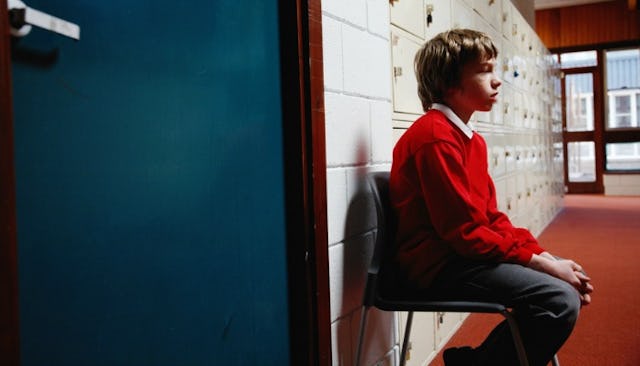7 Valuable Lessons For Parents Of Children With ADHD

I struggled for the better part of seven years, desperately seeking answers to help my child. I felt lost, alone, helpless, like I’d failed as a mother, and unsure of where to turn next. I thought of talking to his pediatrician or seeking counseling, but I never took the leap because his behavior would improve just enough for me to stop worrying momentarily. Then the tailspin would return, and we would plunge back into the confusion. But while it’s taken time, I have gained knowledge and valuable life experience through this journey as a parent of a child with ADHD.
1. Trust your gut.
Something was wrong. I just knew it. It’s difficult to explain exactly how I knew, but in my heart and in my gut, I felt it. That feeling is why I read every book and article that held a glimmer of hope in helping me parent more effectively. Friends and family tried to assure me Xander was “just all boy,” but I knew it was more than that.
2. It’s okay to ask for help because finding the answer is difficult.
Articles, books, and support groups all left me right where I started. My son was struggling and so was I. After talking, my husband and I decided it was time to see a behavioral counselor. I found one who specializes in children’s behavior. Within two months of seeing the counselor, I had answers, a plan for moving forward, and most importantly, knowledgeable support along the way. We had support from family and friends, but the counselor’s support has been altogether different. She leads our family into healthier patterns with gentle guidance.
3. Not all teachers are created equal.
Some teachers have made my son out to be the scapegoat for every negative situation in their classroom. Other teachers have been wonderful, keeping the lines of communication wide open, sending emails or notes home regularly.
Regardless of the teacher, I understand no one could possibly care as much about my son as I do. I keep the teacher updated with what is going on at counseling and ask questions about his behavior. I offer suggestions for helping him in the classroom while keeping in mind that she has 20+ other students in the classroom that need her attention as well.
4. Counseling has helped me too.
There are days when I lose my temper, when I am behaving just like my child with ADHD. I get angry, yell, stomp my feet, or ball papers up in my hand. Once, I caught a glimpse of myself in the mirror while in the throes of such a temper tantrum and wondered how I could possibly teach my son to control his emotions when I was setting such a poor example. That’s when I began to use the same strategies he was learning in his counseling sessions.
There are many times when taking a deep breath (smell the delicious chocolate cake and then blow out the candles) or talking about my emotions has kept me from edging over the tipping point. Even more helpful has been understanding what ADHD truly is. The physiology of Xander’s brain is different, an imbalance between the prefrontal and motor cortexes. He has a physical impairment directly affecting his executive function. Just as eye color or height, this is his genetic lottery. He was born this way.
5. ADHD requires more accountability not less.
Before Xander’s diagnosis, I considered myself an authoritative parent with high expectations for my children’s behavior. That was not always conducive to Xander’s compulsive, inattentive nature. After the diagnosis and a lot of research, I began to relax my expectations. I felt guilty for demanding good behavior. To my surprise, Xander’s behavior grew worse. He smirked as I fought the urge to discipline in the face of whatever outlandish surprise of his I stumbled upon. When I discussed this with his counselor, she said my authoritative parenting style was exactly what he needed. More accountability along with lots of help is what is required for children with ADHD.
6. ADHD looks different for everyone.
ADHD has varying degrees across a broad spectrum, similar to Autism. Each child’s ADHD looks different. That is exactly the reason I never suspected ADHD for Xander. I pictured a child who never sat still, wildly bouncing off the walls, but that is a stereotype. Symptoms can be vast and varied, just as the degree of severity.
7. Not everyone will understand.
ADHD has become a cliché diagnosis, with 10% of children receiving it. Some people scoff at the initials and think it’s really just your parenting strategy that is amiss. If you would just discipline more, if you were more involved, and so on.
As parents, we beat ourselves up and wrestle with self-doubt every single day. Stay away from people who want to blame. Find people who will understand and encourage you. This journey is difficult enough without the added stress of know-it-all judgmental “friends.”
Our journey is far from over, and I look forward to the challenges that await us. Xander is an incredible human being, remarkable in imagination, deeply compassionate, and quick witted, with perfect comedic timing. I am lucky to be his mother and lucky to be a part of his extraordinary life.
This article was originally published on